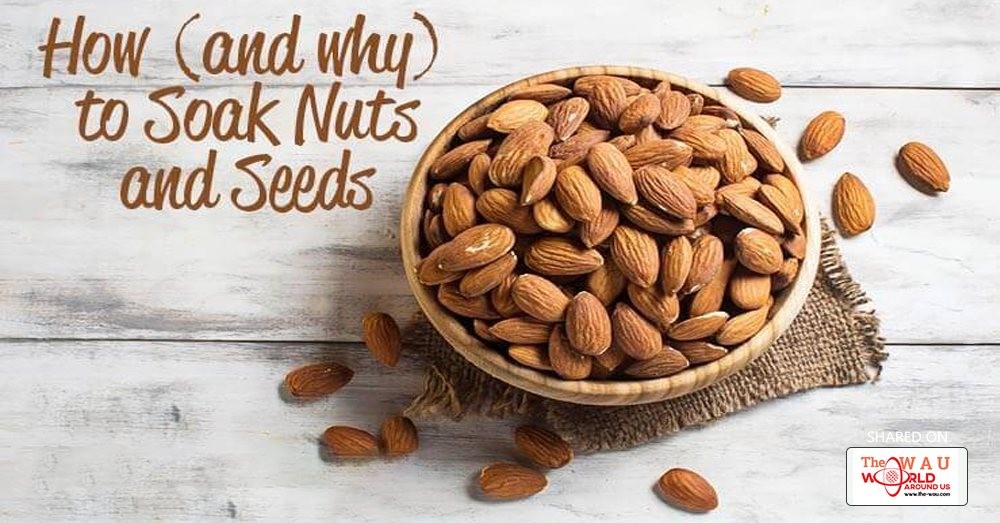Nuts and seeds can be a terrific nutrient-dense snack or addition to a meal, but like grains and legumes, they can also contain substances that interfere with the body’s ability to absorb nutrients.
Just as the process of soaking, sprouting or fermenting grains reduces the anti-nutrient content and makes them more beneficial to the body, the simple process of soaking nuts improves their nutrition.
Enzyme Inhibitors in Nuts and Seeds
Like grains, raw nuts (and especially raw seeds), contain moderate levels of phytic acid and enzyme inhibitors. Phytic acid is biologically necessary for the plant, as it helps safeguard the nut or seed until proper growing conditions are present and germination can occur.
These enzyme inhibitors prevent the seed from sprouting prematurely, but can cause potential problems in humans by binding to nutrients in the body and contributing to nutrient deficiencies and digestive system irritation.
Seeds and nuts store phosphorus as phytic acid and it becomes a phytate when it binds to a mineral. In the body, this process can stop nutrients from being absorbed in the digestive system and reduce the digestibility of these foods.
In other words, just because nuts and seeds are considered good sources of protein and nutrients, doesn’t mean your body can absorb these nutrients. All plants contain phytic acid in some levels, but grains, legumes, nuts and seeds typically contain the highest levels.
It is also important to note that phytic acid may not be entirely bad, but the dose makes the poison. Modern diets high in processed grains and low in nutrient dense fats and minerals may increase the likelihood of nutrient absorption problems and make it even more important to reduce phytic acid levels in food.
Research is finding that phyic acid in certain levels may have a protective effect in the body and a secondary messenger role in cells. It seems that in order to provide this beneficial effect, it must be balanced by certain fat soluble vitamins and other nutrients and the person must be able to absorb these.
This is why it can be helpful to reduce the phytic acid content of seeds and nuts and make the nutrients more available and this step is especially important for young children who are still developing the enzymes to break down these plant foods (ever seen undigested nuts, grains or seeds in a toddler’s stool? This is partially due to their inability to digest certain proteins and nutrients in these foods).
The Importance of Soaking Nuts and Seeds
Some phytic acid is naturally neutralized during the digestive process, but foods that are especially high in phytic acid benefit from the process of soaking (and sometimes sprouting) and dehydrating to further reduce the anti-nutrient content.
Soaking in a simple mineral solution (like salt) and low-temperature dehydrating helps to break down much of the phytic acid and make the nutrients in nuts more available to the body.
While many traditional cultures naturally soaked or sprouted seeds, this step is hardly ever taken with large scale production since it is time consuming. It is, however, simple and inexpensive to do at home and can greatly increase the nutrient content of the seeds and nuts you consume.
How to Soak Seeds and Nuts
There are two parts to soaking nuts and seeds: warm water and salt.
The warm water will neutralize many of the enzyme inhibitors and increase the bioavailability of many nutrients, especially b-vitamins. The salt helps activate enzymes that deactivate the enzyme inhibitors present in nuts.
When soaking grains or beans, a more acidic substance is often used, but since nuts and seeds contain less phytic acid than grains/legumes but more enzyme inhibitors, the salt is more beneficial.
Within 7-24 hours (depending on the seed or nut), many of the enzyme inhibitors are broken down. At this point, a dehydrating process beings to return the nuts to a crisp texture. I’ve found that nuts that have been pre-soaked taste much better and don’t end up undigested in little ones diapers.
...[ Continue to next page ]
Share This Post












